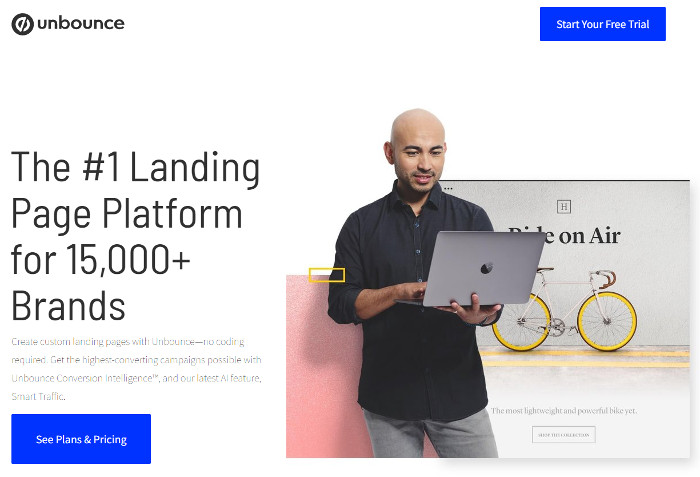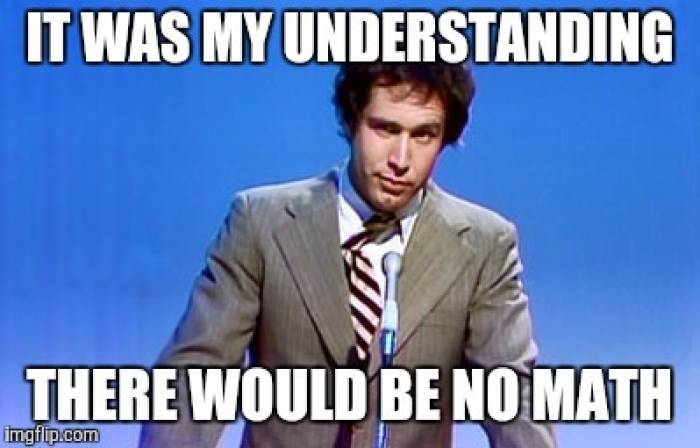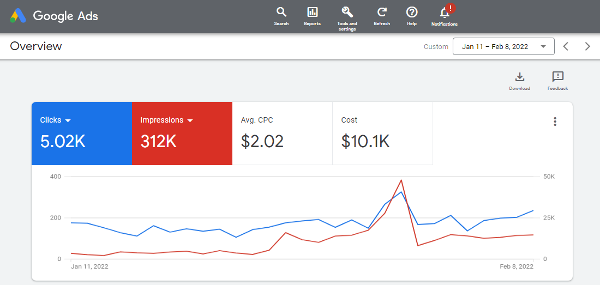Are Google Ads a powerful digital marketing tool? Yes.
Are Google Ads worth it for every business? No.
Squarely Digital has run countless Google Ads campaigns since 2013, for all sorts of businesses (and some nonprofits and associations, too). Many have generated valuable results for our clients. Some have been remarkably successful, with a return on ad spend that exceeded even my expectations (and I’m an optimist).
But not every campaign has worked. And the experience of running good, great, and not-so-great campaigns has led to a few lessons. In this blog post, I have distilled the lessons down to five questions.
These are the questions an organization should ask itself before launching a Google Ads campaign. If you can answer “yes” to all five, there’s a good chance that Google Ads will be worth it for your business.
(Important note: This article focuses on Google Search Ads, the text advertisements you see when you enter a search query into Google. Google’s other ad types, such as display or YouTube ads, can help businesses, too — but they work a little bit differently.)
1. Is There Enough Interest?
At the most basic level, you need to have confidence that some portion of your customers look for or research your product or service by using a search engine. If no one is searching, your ads will never be served.
You probably have a feel for this now. Customers may tell you that they used Google to find you, and you probably have tried some Google searches to check out the competition.
That’s a good start. But it’s not hard to find more evidence.
Start by performing some Google searches on words and phrases potential customers are likely to use. Look at the search results page. Do you see ads at the top? That’s a good sign.
If your competitors are running the ads, that’s an even stronger signal.
Do the ads and the organic (free) results below align with your offering? That’s important, too.
If you want even better data, use Google’s Keyword Planner. In it, you enter some keywords, and it returns estimates for clicks, impressions, cost per click and more.
The catch is you need a Google Ads account to access Keyword Planner, and it can be a little difficult to use for beginners. But a digital marketer who knows Google Ads might be willing to help you, often as part of a free consultation. Don’t be afraid to ask. (Squarely Digital does this — get in touch if you are curious.)
2. Is Your Website Ready?
Can customers buy your product on your website, or can leads contact you through a form? If not, there’s no point in launching a Google Search campaign.
I recommend building landing pages specifically designed for Google Ads campaigns before investing in ad spend. A good landing page lets the user know that you can solve their problem, and gives them some idea of how you do it.
It also offers a simple way for them to take the next step, be it making a purchase or setting up a consultation.
It’s attractive on desktops, mobile phones and tablets. And it’s focused, with little extraneous information to distract the user from the task at hand — converting.

This is an actual Google Ads landing page designed for desktop browsers by Unbounce, a landing page builder and platform. It’s well done.
Finally, you absolutely need to be able to track what happens when visitors who click on your ads hit your website. Do they convert? Do they visit additional pages? Which ones?
None of this is too difficult, especially if you have Google Analytics installed on your site. But you need to check these boxes to make Google Ads worthwhile.
3. Do You Want Volume?
Google Ads is, in some ways, a numbers game. You set up a campaign to drive a consistent, significant number of conversions each month. Ideally, it runs for a long time and as you work on the campaign, costs decline and conversions rise.
You end up with an efficient business-generation machine.
For most businesses, that sounds fantastic. But some businesses only need one new client each month to prosper. If that’s you, Google Ads is probably not worthwhile. Your time and money probably could be spent better elsewhere in search of that one great client.
4. Can You Invest?
As I mentioned above, Google Ads is a numbers game.
You pay every time a user clicks on one of your ads. But not every click becomes a sale or lead. In fact, it’s important to know ahead of time that a conversion rate of 5 percent — one conversion for every 20 ad clicks — is great performance in many industries.
So you should do some math before embarking on a Google Ads campaign.

(If you don’t get the reference, click here.)
For example, if
a) You are confident that you could achieve a conversion rate of 5 percent.
and
b) Keyword Planner estimates you would pay $5 per ad click (a relatively inexpensive click in many industries),
you could reasonably expect that you will have to spend $100 for one sale or lead.
(Showing my work: That’s 20 clicks at $5 each, or $100, with one of the 20 clicks converting.)
With that estimate, you can make an informed decision on whether Google Ads will be worth it.
(It’s also important to note that it’s unlikely your campaign will operate at maximum efficiency from Day 1. So it’s smart to budget for a lower conversion rate for the first six to eight weeks as you optimize the campaign.)
5. Do You Have Time?
I wrote above that Google Ads can become an efficient business-generation machine for businesses. It takes work to make that happen.
So you need to decide if your business has the time to dedicate to Google Ads.
For an experienced Google Ads manager working on a modest campaign*, it takes about:
- One hour before launch to research keywords
- 30 to 45 minutes to set up a campaign
- 30 to 45 minutes each week to check in on the campaign and make adjustments as needed
- 60 to 90 minutes every four to six weeks to take a deeper dive, making more significant changes or refreshing keywords and ad copy.
If Google Ads were a set-it-and-forget-it proposition, this would be much easier. But it’s not.
(Without sounding too self-promotional, I should note that many businesses answer “yes” to Questions 1 through 4 and then hire an agency like Squarely Digital to address Question 5. Of course, that changes the math in Question 4 — can you invest?)
* – I would define a “modest” campaign as one that focuses on a single offering, targeting two or three groups of related keywords. Each group typically includes two or three ad variations, as well.
—
In the near-decade that Squarely Digital has run Google Ads campaigns for clients, I have grown attached to them (really). They’re like a good puzzle — a challenge that requires proficient copywriting and math skills. You need to be good at both Word and Excel, if you will.
But Google Ads is not for everyone. If you have read this far and think Google Ads could be worth it for your business, I encourage you to go for it. Or consult with an experienced marketer who can get you started.
Good luck!

